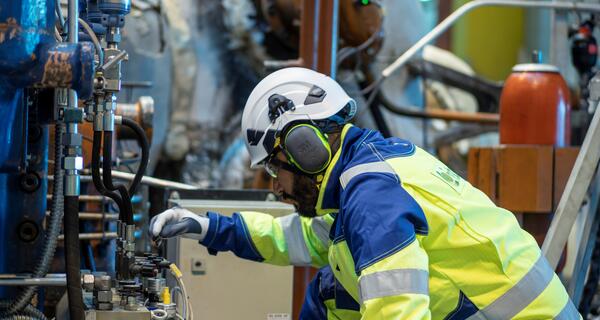
Effective control systems are an important part of a power plant’s reliable and safe main rotating equipment, but they are easily forgotten when everything is running as it should and nothing unusual has occurred in the control and protection systems. Anomalies may be temporary and systems may recover on their own – until the control system breaks down permanently when the next disruption comes along. As a result, communication to other systems will not work correctly and productivity will decrease. Even though the risks of malfunctions are known, the lack of straightforward condition and aging assessments continually push the development and modernisation of control systems to “next year’s budget”.
Control systems are not part of turbine and generator manufacturers’ core business and, from the perspective of profitability monitoring, manufacturers typically recommend that customers deploy a completely new system or simply replace individual damaged components. The maintenance, development, and continuous monitoring of systems often remains with the equipment owner, with minimal support from the system manufacturer.
It is often difficult for owners to see their control systems as an important profitability factor – profits come from the main rotating machines, and control systems are not considered to have any impact. Presenting the added value of the systems, a maintenance strategy, and a risk management plan to obtain an appropriate budget is much more difficult than replacing or upgrading outdated mechanical components that repay themselves through concrete profits.
Without a customised maintenance strategy for control systems, the risk of decreased plant reliability or availability increases as systems age. Furthermore, the potential of the IoT and AI cannot yet be fully utilised. This in turn reduces competitiveness and limits the power plant’s earning potential, for example, through their participation in the reserve market or an increase of other operating flexibility, where all the benefits of end products – be it the use of electricity, steam, or heat – in other processes can be fully leveraged.
Benefits gained from the modernisation of control systems:
- Early warnings of nascent malfunctions and correctly timed maintenance through continuous condition monitoring Mechanical and electrical condition monitoring, tailored to the machinery’s lifecycle phase, condition, and criticality can ensure the safe use of main rotating equipment and helps to detect any hidden flaws at an early stage. As a result, maintenance decisions can be made at the correct time, minimising the risk of unscheduled outages.
- Integrating turbine control and protection systems into plant-level systems Often, main rotating equipment manufacturers deliver a control and protection system that is separate from the plant’s other process control systems. Integrating separate systems into the plant’s automation system makes operation and maintenance easier, increases insight into the operating equipment, and supports decision making.
- Optimised operation through AI AI can significantly optimise processes at waste and biofuel power plants where the quality of fuel varies. AI helps to define what actions are required to optimise the process, or it can be given the power to directly impact the optimisation of controls.
- Modernising original control and protection process equipment Older control and protection equipment does not usually meet modern availability and safety requirements. When modernising systems, instruments that control the main rotating equipment and the most important measurements should also be upgraded so that they do not present obstacles in the development of operating flexibility and reliability.
Industrial automation systems have taken significant leaps forward and provide major benefits in terms of maximising safety, productivity, and operating flexibility. These are often ignored in long-term maintenance agreements, regrettably. However, long-term maintenance agreements can include lifecycle management and performance optimisation of the control systems. This ensures the appropriate maintenance, risk management, and development of assets that are critical for productivity.
“We do not offer any standard solutions; rather, we identify each customer’s unique needs and the criticality of their equipment, and offer them the ideal customised services to ensure reliability and availability.”
Toni Loivakari Head of Business Line, Systems, Fortum TGS
Contact our specialist for more information
Toni Loivakari
Head of Business Line, Systems
Tel: +358 40 013 9545
toni [dot] loivakari [at] fortum [dot] com